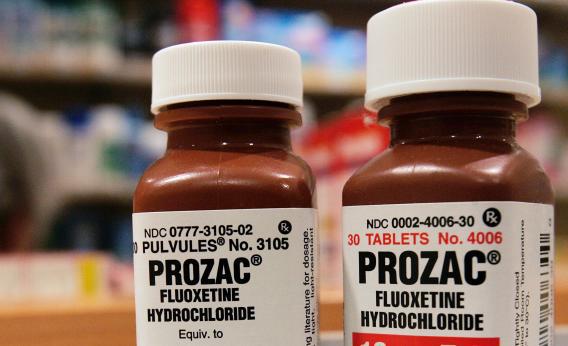You’ve no doubt heard the argument that antidepressants are over-prescribed, and that their benefits have been oversold. Some anti-antidepressant’ers are taking that critique to the next level, attempting to make the case that there’s no such thing as an antidepressant.
“Should a drug that produces sexual dysfunction for the majority of users and which doubles the risk of a suicide attempt be labeled an antidepressant?” writes clinical psychologist Bruce Levine in AlterNet. Levine is riffing off this paper by David Antonuccio and David Healy, which sets out six criteria that the authors think a drug should have to meet before qualifying as an antidepressant. The Davids conclude that, by their self-created standards, the term “antidepressant” is just a pharma marketing ploy:
In other words, it may make just as much sense to call these medications antiaphrodisiacs as antidepressants because the negative effects on libido and sexual functioning are so common. It can be argued that a misleading label may interfere with our commitment to informed consent. Therefore, it may be time to stop calling these medications antidepressants.
Some items on Antonuccio and Healy’s checklist are sensible, like the proviso that the drug should be clearly superior to placebo. But that seems obvious. If your drug doesn’t relieve depression better than a sugar pill, it’s not really an antidepressant. Even the leading critics of antidepressant efficacy acknowledge that the drugs are clearly superior to placebos in patients with severe depression.
Other items on the list are downright bizarre, like the stipulation that a real antidepressant wouldn’t cause sexual side effects. Levine writes:
If a greater percentage of antidepressant users suffer from sexual dysfunction than are relieved of depression, in a scientific sense, it is not silly to label the medication in terms of the condition that it affects most?
But this is like saying you can’t call an anti-cancer drug anti-cancer, because it also causes sexual side effects. Sexual dysfunction is also a common side effect of some drugs for high blood pressure, but we still call them blood pressure drugs, because that’s what they’re used for. Of course patients should be warned about the potential side effects of antidepressants and other drugs. Every competent doctor does that already.
Oh, and you know what else kills your sex drive? Depression.
Following the checklist, Levine asserts that true antidepressants shouldn’t increase the risk of suicide. He cites one study of Prozac in teenagers in which the rate of suicide attempts was 4 percent in the drug group and 2 percent in the placebo group. That’s certainly cause for concern. The FDA wisely put a black box warning on Prozac for people under 25. However, the fact that some antidepressants make a small percentage of patients more depressed (or more energetic and therefore more of a danger to themselves) doesn’t negate the fact that they have the opposite effect for most people.
Also, Prozac isn’t the only antidepressant. Levine talks about it as if it were. He wants us to believe that because one drug increased suicide risk in one subset of patients, that’s evidence that every antidepressant drug is a ruse.
Lots of other drugs have so-called “paradoxical effects”—meaning that, in a small percentage of users, the drug does the opposite of what it’s supposed to do. Some people actually get agitated from anti-anxiety drugs. That doesn’t mean that there’s no such thing as anti-anxiety medication. There are legitimate questions about the efficacy and marketing of antidepressants. Let’s discuss those instead of arbitrarily trying to define them out of existence.
